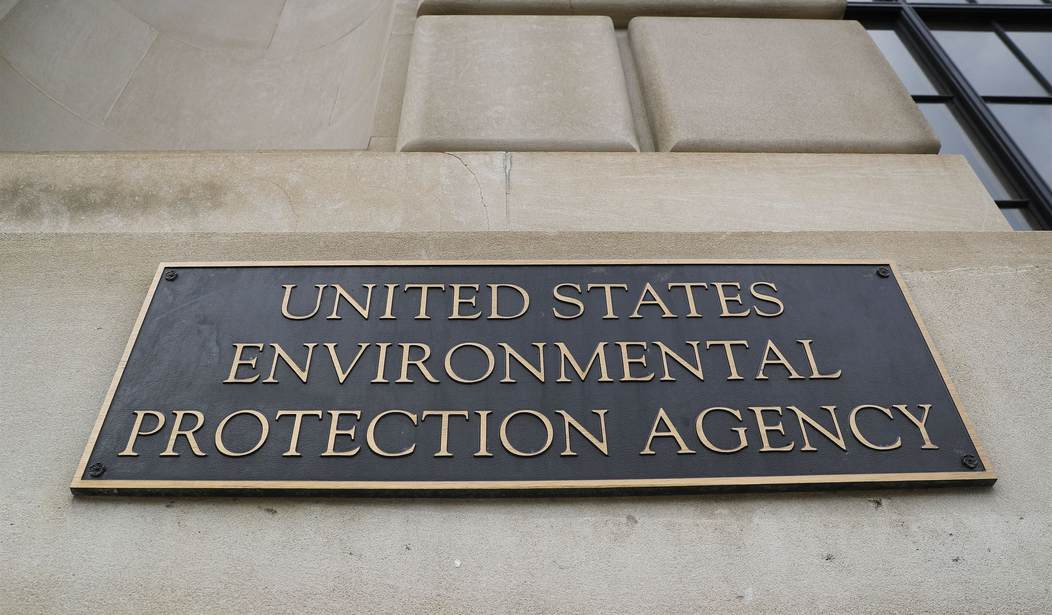The ruling in West Virginia v Environmental Protection Agency (EPA) devastated members of the climate cabal, like Rep. Alexandria Ocasio-Cortez (D-N.Y.). While she usually prattles on about “our democracy,” today she was in a “burn it all down” kind of mood for the planet. However, it was terrific news for anyone concerned about economic freedom and human flourishing.
West Virginia is the fifth largest producer of fossil fuel in the United States and the second largest coal producer. West Virginia State Treasurer Riley Moore hailed the ruling as a huge win for his state. “Coal and liquid natural gas run this state,” Riley said. “The administrative state in D.C. had to be rolled back. The EPA had no authority to make economy-shifting regulations. This is a win for West Virginia and the country.”
According to Moore, with the fossil fuel shortages created by Biden’s energy policy, the price of coal increased from $35 to $200 a ton. A significant amount gets exported. One of the biggest challenges for the industry is losing access to capital because of woke ESG policies from many banks and investment firms. Despite these challenges, West Virginia is bouncing back from the devastation caused by the Obama EPA’s Clean Power Plan.
“The initial push destroyed many of the best paying jobs in the state,” Riley said. “Easily in the tens of thousands for coal and coal-related employment. Drug addiction and joblessness exploded in the state. The whole environmental crusade is a solution looking for a problem. Human flourishing is tied to two things. Good jobs and affordable energy.”
Recommended: EXCLUSIVE: FOIAs Reveal Progressive Money Fueling FBI, DOJ, Leftist Activist and Election Official Coordination
However, with higher coal prices, West Virginia is bouncing back. Moore said new coal mining operations started up, and with restrictions on capital, owners are self-funding and finding creative ways to finance operations. Coal continues to feed the state’s power plants. “We have the best, cleanest coal in the world,” Moore boasted. “We don’t want any pity. We just want to be left alone. If that could happen, this state would shine.”
Derek Kreifels, CEO of the State Financial Officers Foundation (SFOF), agrees that the ruling is a win for economic freedom. “We applaud the decision today handed down by the Supreme Court to strike down an Obama-era relic of executive overreach. As many of our members have stated, this rule was an unprecedented attempt to expand the powers of a politicized agency, well beyond what Congress envisioned when it passed the Clean Air Act in 1970,” Kreifels said. “The decision today is not just a victory for States whose economies would have been unfairly hit by excessive regulation, but a blow against the centralization of power and the growth of the Administrative State, which threatens the economic freedom that has made America the envy of the world.”
Steve Milloy, Energy and Environmental Institute senior fellow and former Trump/Pence EPA transition team member, agrees the ruling pushes the EPA to act under the authority granted to them by Congress. According to Milloy, there is nothing in the EPA’s mandate that allows the agency to govern greenhouse gases, and the Supreme Court decision appears to prevent it from doing so directly. “Will all other greenhouse gas regulations be challenged?” Milloy asked. “We’ll see.”
However, he warns that what the agency is prohibited from doing directly, it will try to do indirectly. “The EPA is working on tighter air quality standards for ozone and particulate matter,” Milloy noted. If cities and states can’t meet these new standards, the EPA can deny them highway funds. This puts the EPA in charge of local economies. “Did anyone intend that when the agency was formed by Congress?” Milloy asked.
According to Milloy, this type of regulation will affect what gets built, what energy sources get used, and what industries start nationwide. Unlike the Clean Power Plan, which SCOTUS ended today, these new regulations will not directly mandate a change in the economy. Instead, they will change how energy gets created through air quality regulation. The new rules are already the subject of a lawsuit.
Young v. EPA is in D.C. District Court and challenges how the EPA constituted an advisory board it must empanel to review the air quality regulations. According to the Washington Times:
The Clean Air Act requires that, when setting air quality standards, EPA seek the advice of a panel of experts known as the Clean Air Scientific Advisory Committee (CASAC). When Biden EPA administrator Michael Regan assumed office earlier this year, one of the first things he did was abruptly and without cause fire by terse email all the members of all EPA’s science advisory panels, including CASAC. Administrator Regan also announced he was jettisoning conflict-of-interest rules (instituted by the Trump EPA) barring science advisors from being current or recent recipients of EPA grants.
One of the new members, Dr. Lianne Sheppard, received over $60 million in grants from the EPA. A total of five members of the board are EPA grantees. This type of conflict of interest is part of the basis for the lawsuit.
Both Moore and Kreifels agree the ruling today is a victory in one battle in a much longer war to bring the EPA under control. Kreifels added, “Regulatory agencies need to stay in their lane. They need to stop trying to change the law by declaring it so through regulation.”
Moore warned it is not just federal agencies. Woke capital gets weaponized against fossil fuel and other industries disfavored by the global elites. West Virginia is already taking steps to fight back. The state has taken all liquidity funds from investment firms that boycott fossil fuels. It also just notified banking services firms that assist in processing over $20 billion in ACH funds for the state that West Virginia will terminate the business if they employ what is commonly called environmental, social, and governance (ESG) criteria.
“We are not going to fund our own demise,” Moore said. The West Virginia legislature is considering pulling state pension funds from investment firms that use ESG. Kreifels agreed that ESG investing and banking is another pressure point on states and local governments. “Sweeping environmental initiatives cannot pass legislatively, and the environmental movement knows it. So, they will push ESGs through the private sector to bypass the federal and state legislatures,” he said.
Today’s SCOTUS ruling was a significant first step. But small-government advocates interested in reining in the administrative state must keep their heads on a swivel. Restoring true economic freedom will be a complex game of Whack-a-Mole, leveraging the power of individual states to manage their financial transactions and challenging any executive overreach back to SCOTUS when necessary.










Join the conversation as a VIP Member